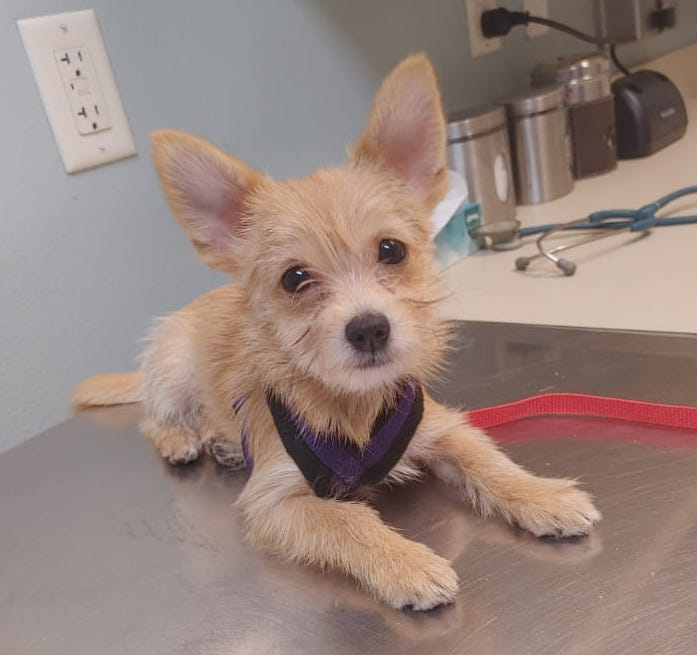
Are you in search of a veterinarian for your pet? Whether you have a new pet in your household or you’re living in a new area after moving with a pet, you know it’s wise to start the process of looking now, before an emergency. What are your needs and wants? What would be best for your pet?
I asked pet guardians and animal professionals for their advice.
“What process would you suggest that folks follow to find the right fit for themselves and for their pet in veterinary care? What process have you used yourself to find the right fit with a vet?”
Here are some of their suggestions on finding the right veterinarian.
Sue Heron (Florida) [I’d look for] the vet that takes the time to listen. Isn’t afraid to try holistic remedies. Doesn’t try to push certain foods when they know you feed a raw diet. Believes in titer testing. Compassionate. And who is only a text away … Kidding, but my vet has been my pets’ vet for over 20 years. She is not the cheapest but she is the best.
Amy Cowley (United Kingdom) For me, [one who] understands nervous dogs. [I look at] the size of their waiting room. I want to have a vet who will take the time to listen.
Peggy Frezon (New York) We recently moved and had to find a new vet for our golden retrievers. We were happy to find a vet that is Fear Free Certified.
Marianne Mongeon Wilder (Washington) I own pugs, so while looking for a new vet, I wanted to know how many pug patients each clinic had. Pugs have all kinds of strange issues and both vets I researched were very experienced with pugs!
Annie Zeck (Washington) [It’s important to me] to find someone who understands that dachshunds are little hunting and tracking geniuses and not “just pets.”
Isabel Alvarez Arata (Texas) Ask like-minded pet parents for recommendations.
Kate LaSala Ctc Csat (Connecticut) Ideally a Fear Free Certified professional. If not, then make sure they follow those same guidelines for low-stress handling, like using pre-visit meds when indicated, allowing pet parents to stay with the animal during the appointment, using food during the appointment to lower stress and to try to create positive associations, staying on top of current continuing education, especially in behavior, since that is often an elective in vet school. As a benchmark, I often start by asking what their recommendations are for young puppies. Vets who recommend things like “Don’t take your dog out in public before all their vaccines” are out-of-date on current socialization protocols, and if they’re following outdated info on that, what else are they behind the times on?

Photo by Sodonnia Wolfrom
Micha Michlewicz (Maryland) Willing to work with me on what my pets need to feel as safe as possible—what I, as the worried pet owner, need to be able to understand, and to be able to communicate both ways (us to each other) the care and information needed, and to support my ability to make decisions. I feel that continuing education is very important (duh, legally mandated [in some states], but I like a passion for it), and that they have evidence-based practices. I don’t want to be scared into or advertised at a bunch of harmful-at-worst or unhelpful-at-best, money- and time-wasting add-ons that won’t help my pet and will drain my resources. I also really like someone who will tell me that they don’t know something (I have a lot of respect for that), and will refer out for specialties/where beneficial. I also really like vets who will accommodate pharmacies like my local one, or a preferred online one. I understand that some are terrible and make an exception for those. But for the other pharmacies, the more I can afford, the more I can do for my pet. And not having to drive all over creation to pick up written scrips is an important safety issue for me as a disabled person.
Janet Velenovsky (Virginia) I recommend making an appointment and getting to know the vet before taking your pets in. Might be a bit more challenging during COVID times, but it lets you ask questions and get to know the vet’s personality before subjecting your pets to a visit. I did this 23 years ago when I had moved, and it started my relationship with the most wonderful collaborator regarding my pets’ wellness. I showed my respect by paying for her time. She felt comfortable taking the time to thoughtfully answer my questions. I learned about her willingness to explain her thought process in detail—and that she had a great take on life and a wicked sense of humor. It was a win-win-win!
Summer Storm Kingery DVM (North Carolina) Honestly, as a veterinarian, I wish clients would listen when we tell them we aren’t a good fit for their needs. If the [vet clinic you’re considering] has a mission statement or philosophy, read it. Ours is “Living longer, better lives together.” Our mission is to provide “unrivaled veterinary medical services based in science and delivered with exceptional and personalized care.”
This gives some hints—we aren’t likely to jump on fads like coconut oil for everything. The care your dog gets may not be the same as that for another dog of the same age, breed, and sex because we tailor care to lifestyle and individual needs. We are going to ask lots of questions to figure this out. We won’t be the lowest-cost place because [clinics] don’t have the best technology for unrivaled care if [they] are using equipment older than any living former president. If there’s something you really like or dislike personality-wise in your doctor or team, ask the team or receptionist about it. I am not available for phone calls unless scheduled as a consultation. If someone puts a priority on reaching a doctor on demand, I am not the doctor for them. If someone wants a doctor who is up-to-date on current research and [who] knows where to refer for things like kidney transplants, you will like being here. Fit is critically important for good veterinary care!

Photo by Bryn Souza
Jennifer Grant (New Mexico) First, is the office environment designed to reduce stress for the animals? Will staff work with you to reduce stress, call you directly from car into exam room? Can you communicate with staff and will they accommodate your wishes? Are they gentle and patient? If [you are] uncomfortable with how your animal is doing, say “I must leave” and leave. Better to insult them than to create [in your pet] a fear of the vet for many years. It usually takes me visiting three offices to find one I like. Speak up! I refuse to have blood taken without me in the room. If they do not like that, I find another vet office. Remember you are paying them; do not let the white coat intimidate you. If you find a good one, shower them with gifts and thank-you cards. It is a difficult profession.
Summer Storm Kingery DVM I wish, from the vet side, that I could add: “If your doctor is bringing up anxiety medications for vet visits or injectable meds to relax your pet, it is because they are trying to make the experience as devoid of stress as possible for the long-term well-being of the patient.” Though I did ask a client to leave the room yesterday so we could finish his pet’s exam. The pet was a major resource guarder and was letting us know he was going to bite us. We were pretty sure that was what we were dealing with because he also guarded my stethoscope once I set it down and he sniffed it (one of the things we do to help nervous dogs feel safer). As soon as dad stepped out, big 100-pound dog lay down and put his head in my lap for the rest of the examination with relaxed curvy body language, no restraint for blood draw. I could not touch him with dad in the room.
Jennifer Grant Yes, sounds like they need a thorough behavior assessment and behavior modification plan. In this case, I might want video of the whole thing if it was my dog, but clearly they need help. I will say this is not the issue with my clients, it is fear of strangers and restraint.
Summer Storm Kingery DVM We have a few patients that are completely relaxed away from owners and are super-aggressive with owners. It’s fascinating. I don’t mean shut down. I often wonder if there has been a bad pattern of escalation on both sides of the leash that has conditioned the behavior.
Jennifer Grant Interesting, I see owner-guarding occasionally with clients, but it is far from common in most cases. I imagine the required handling in smaller spaces changes the dynamic a great deal. I have the gift of a lot of time over as many sessions as it takes. I do wish every puppy guardian and any early handlers started conditioning handling and grooming in a fun way. I tell clients all the time they are going to have to learn to groom [the pet] themselves because their dogs are so utterly terrified that it is unfair to dog and groomer. Often the adopted dogs had traumatic experiences that involved cars, grooming, and vet visit, because they were so lacking in any good socialization and handling conditioning. Some are absolutely phobic of vet visits. So preventable. It is sad.
Summer Storm Kingery DVM I’m so grateful that we have half a dozen amazing trainers we can work with in our area. However, getting clients to work with trainers is a problem.
Jennifer Grant Yes, trying to get ahead of these issues before is always a challenge with the humans.
Ingrid Bock (New York) Oh, my word. In these times, good luck. Just good luck.
Summer Storm Kingery DVM This is part of why I wish folks would listen when my team is telling them from the first call that we aren’t a good match. My team can generally tell pretty quickly if a client is going to hate our policies and boundaries. I would rather keep space open for folks who are a great fit. I want happy pets and people all around. When we say, “It sounds as if you may be best served [at neighboring practice, a mobile vet, a specialist], it’s typically because we can match up personalities with how vets practice medicine. As many folks [as there are] saying they want low stress/fear free, I have as many clients angry that we won’t “just pin him down.”
I love what I do. I live and breathe it. There are days when I think about leaving. It’s the reason I think compatibility is so important. I have at least one client a week tell me I am a horrible human. In the past two years, I have had death threats, been shoved down in my practice by a client, received a six-page letter detailing how I am the scum of the earth for not working for free, have had negative reviews because I didn’t return to the state to euthanize a pet in acute heart failure (I was nine hours away). And that doesn’t include folks who tell me they are funding my vacation (I haven’t had one in three years), my car (a $9k used Nissan Leaf), and a wing of my hospital (real estate alone was a million). It’s a rare day that someone doesn’t tell me or my team something about how we are killing pets and people. It’s just exhausting and, a lot of the time, the worst part is that when you go above and beyond … it happens.




